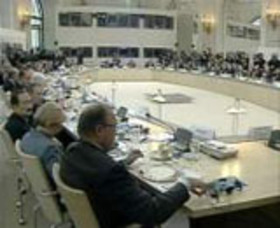

An IGC is a decision-making body in the EU. Any decisions reached must be made unanimously by all Member States. The EU treaties can only be amended after an IGC at which every Member State is represented. The result of an IGC becomes a treaty, which is sent to the Member States for ratification. Before a treaty can enter into force it is ratified in line with the constitutional provisions of each state.
The future
The EU Constitution drawn up by the Convention has been submitted on 4 Octover 2003 to the heads of states and governments in Rome for the opening of the Intergovernmental Conference. The acceding states are fully participatingon an equal footing with the current Member States. The three candidate countries, Bulgaria and Romania, with whom negotiations are underway, and Turkey, will take part in IGC meetings as observers.
The EU Constitution suggests that the European Council, deciding by simple majority, might convene a Convention composed of representatives of the EU Parliament, the national parliaments, the national governments and the EU Commission. This Convention will then adopt amendments to the future Constitution by common accord. These amendments will then need to be ratified by all the Member States.
According to Art. I-24.4 of the EU Constitution the Prime Ministers are permitted to change all articles on unanimity to qualified majority without ratification.